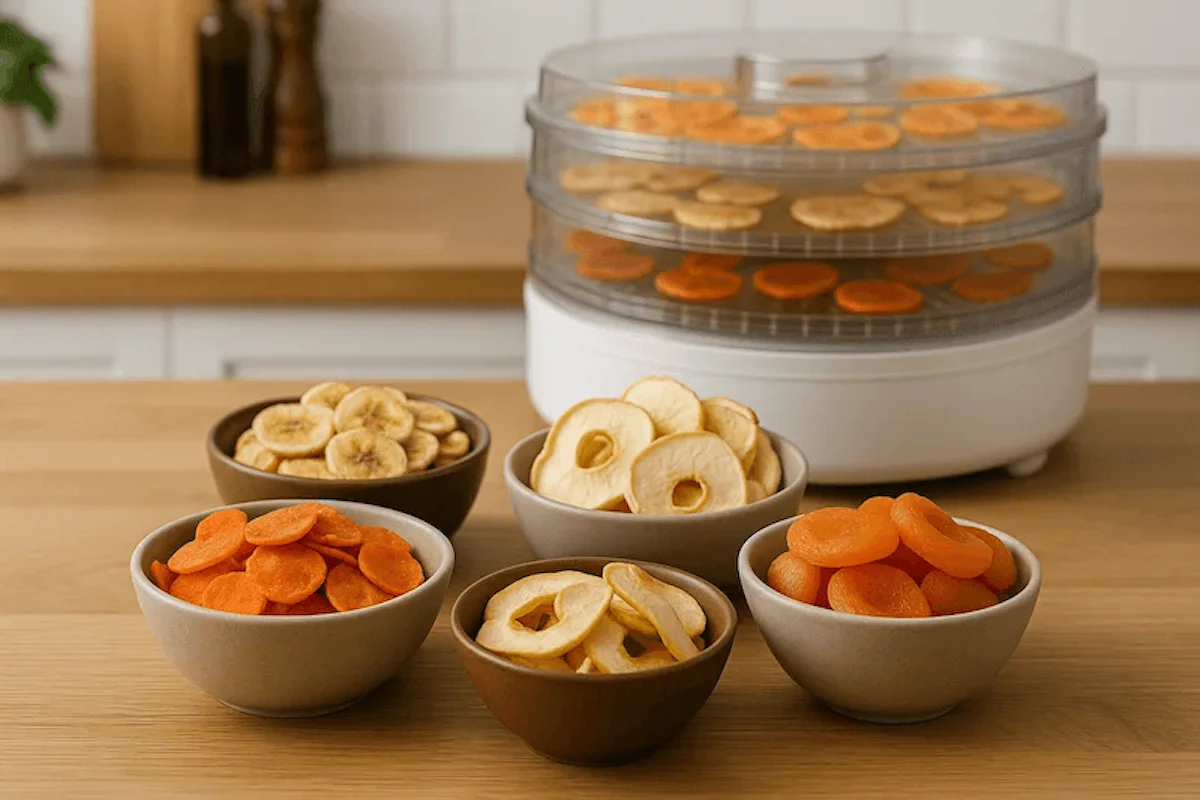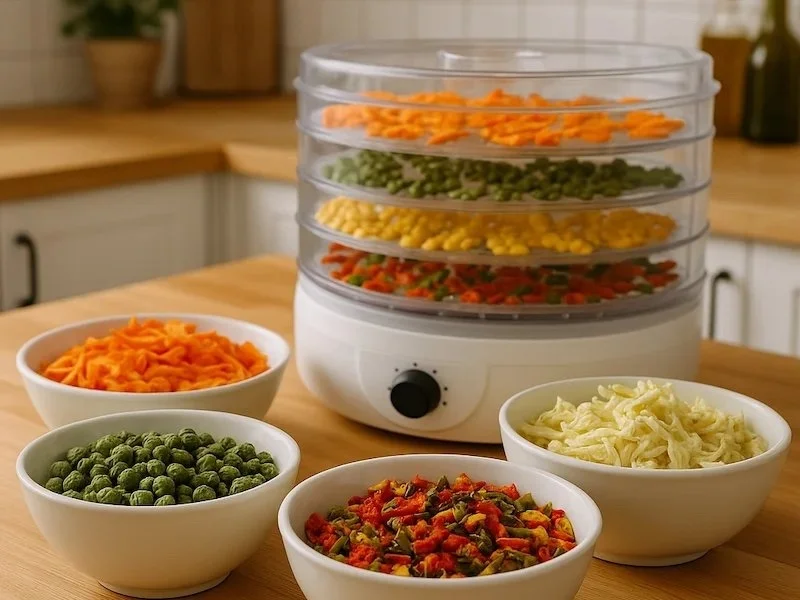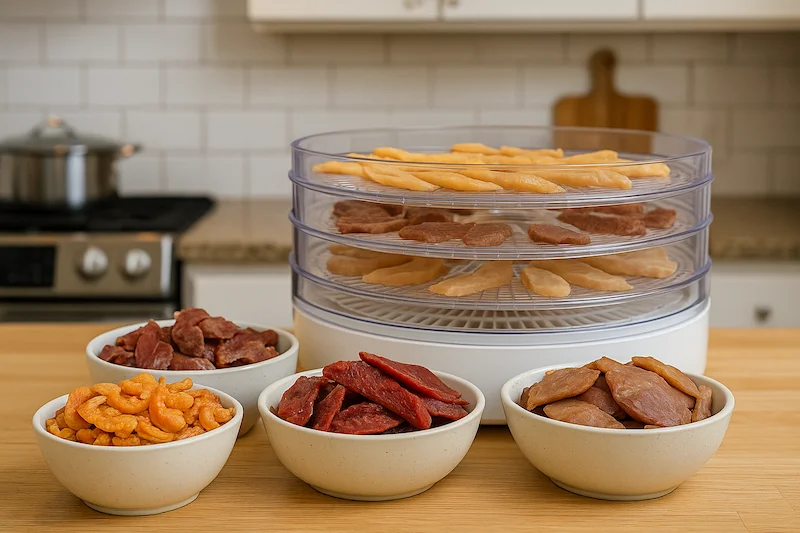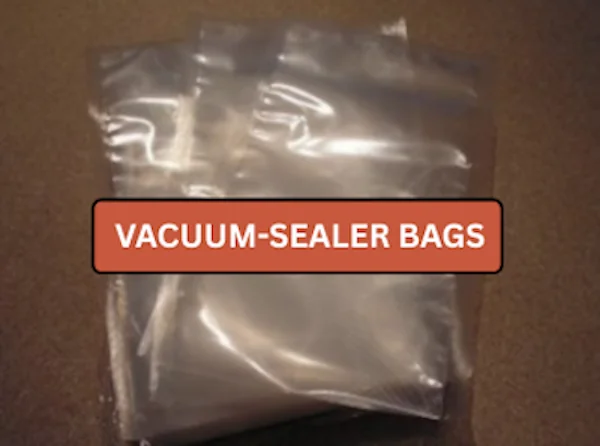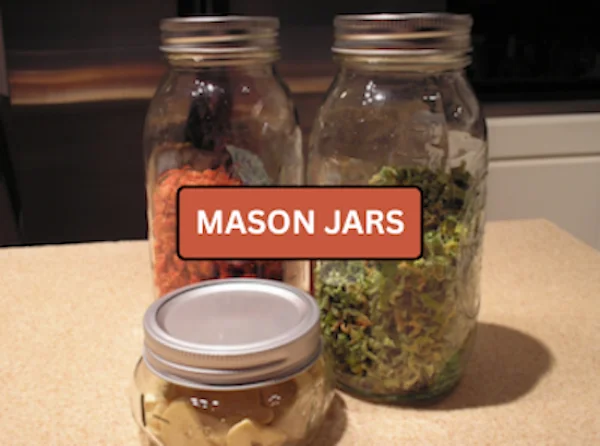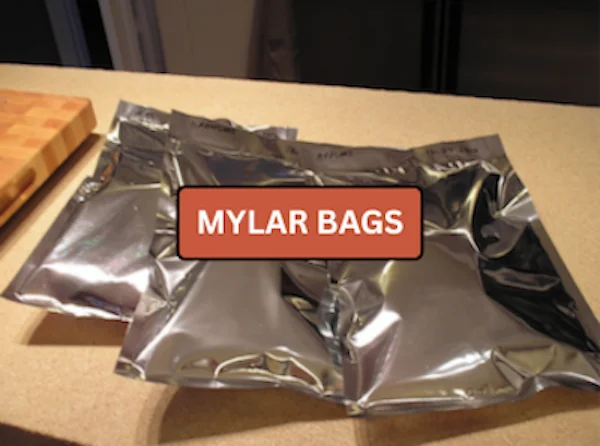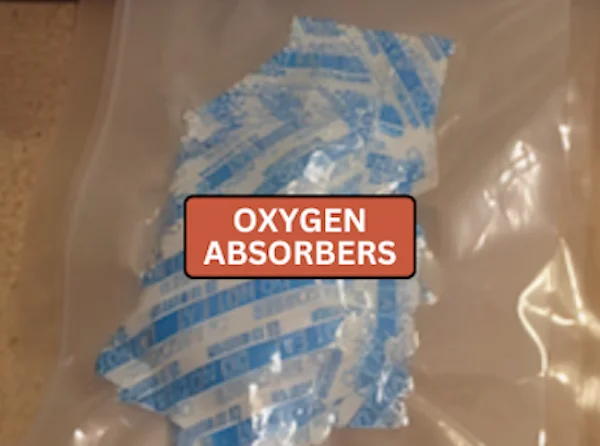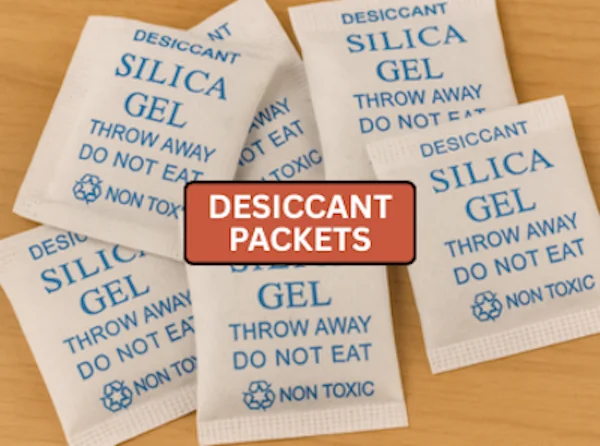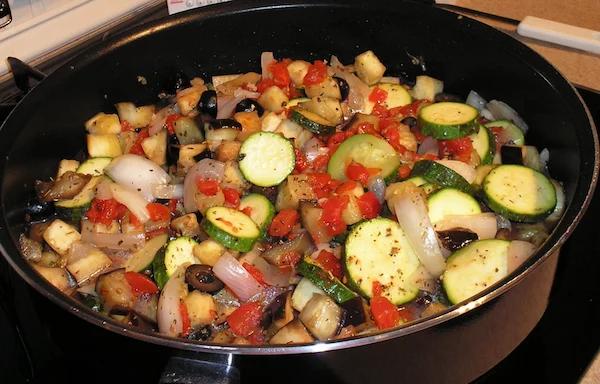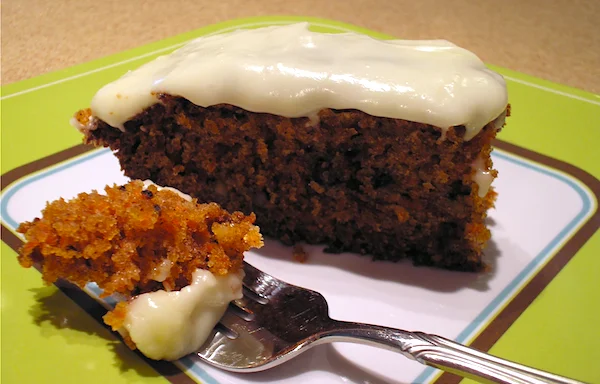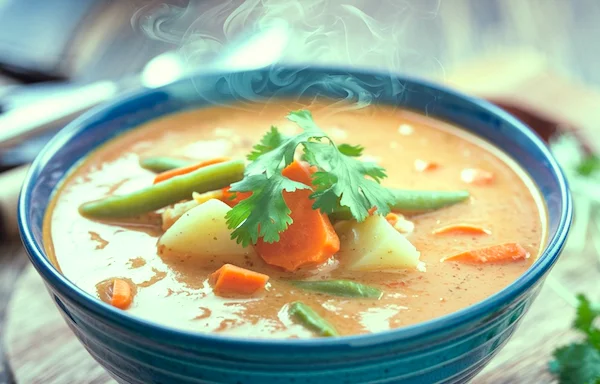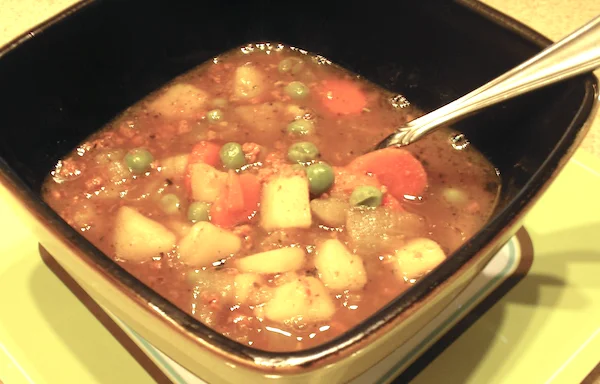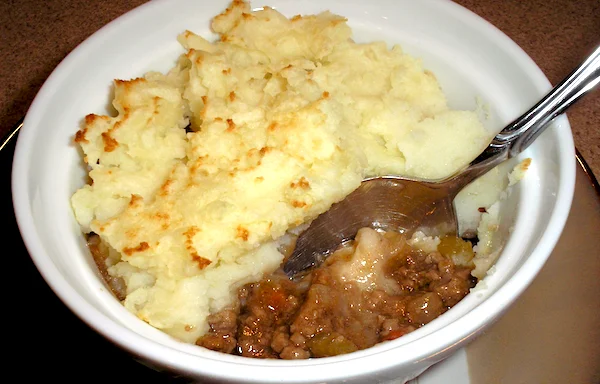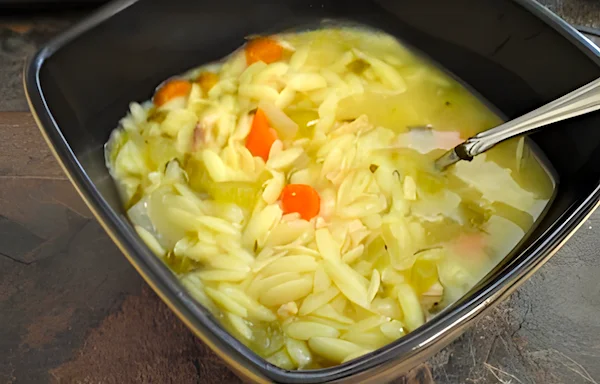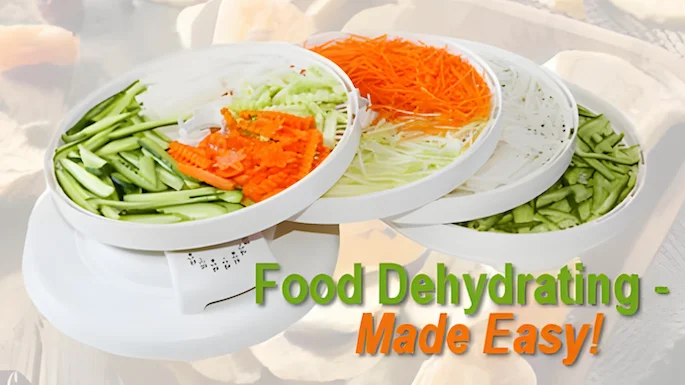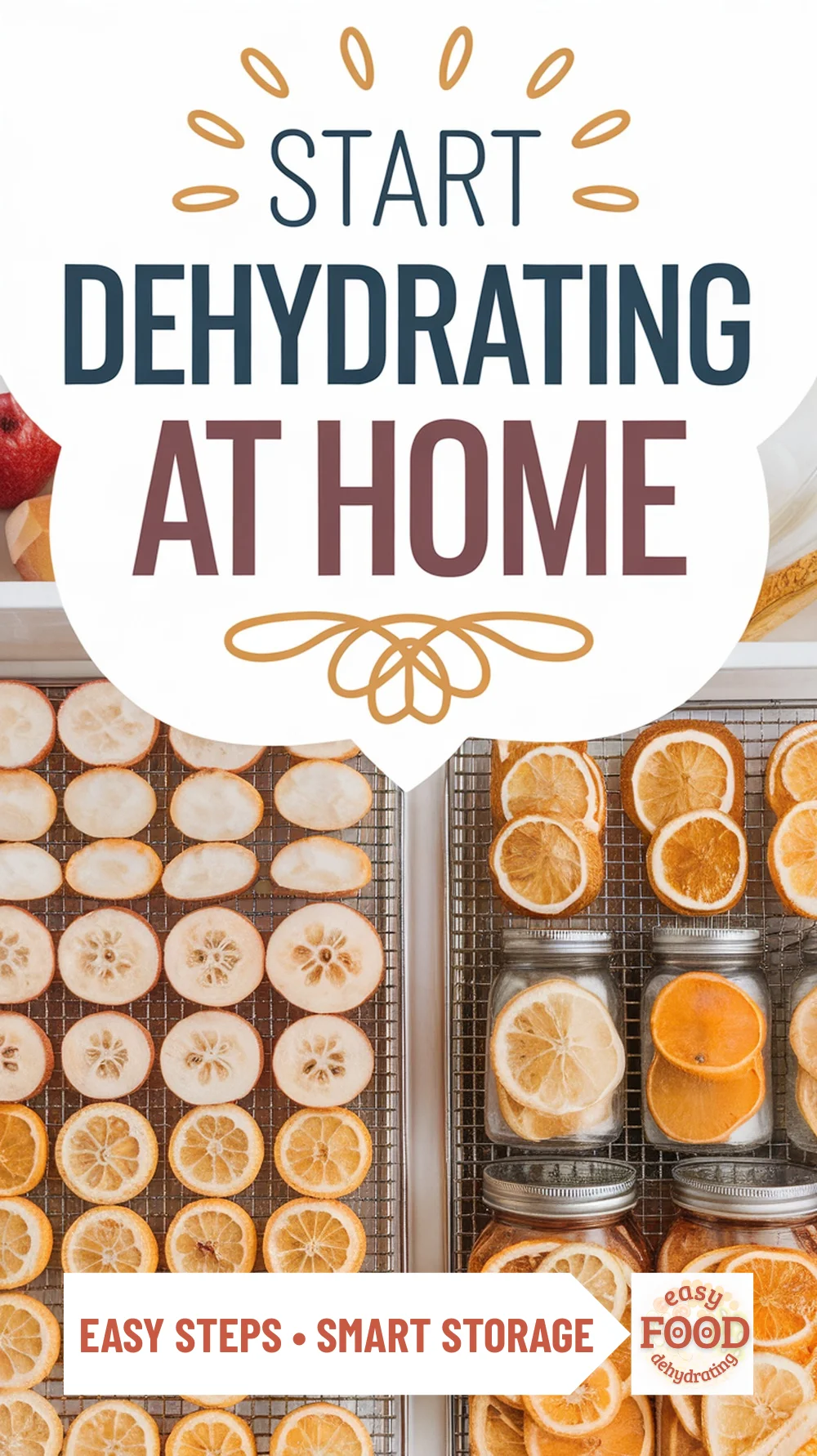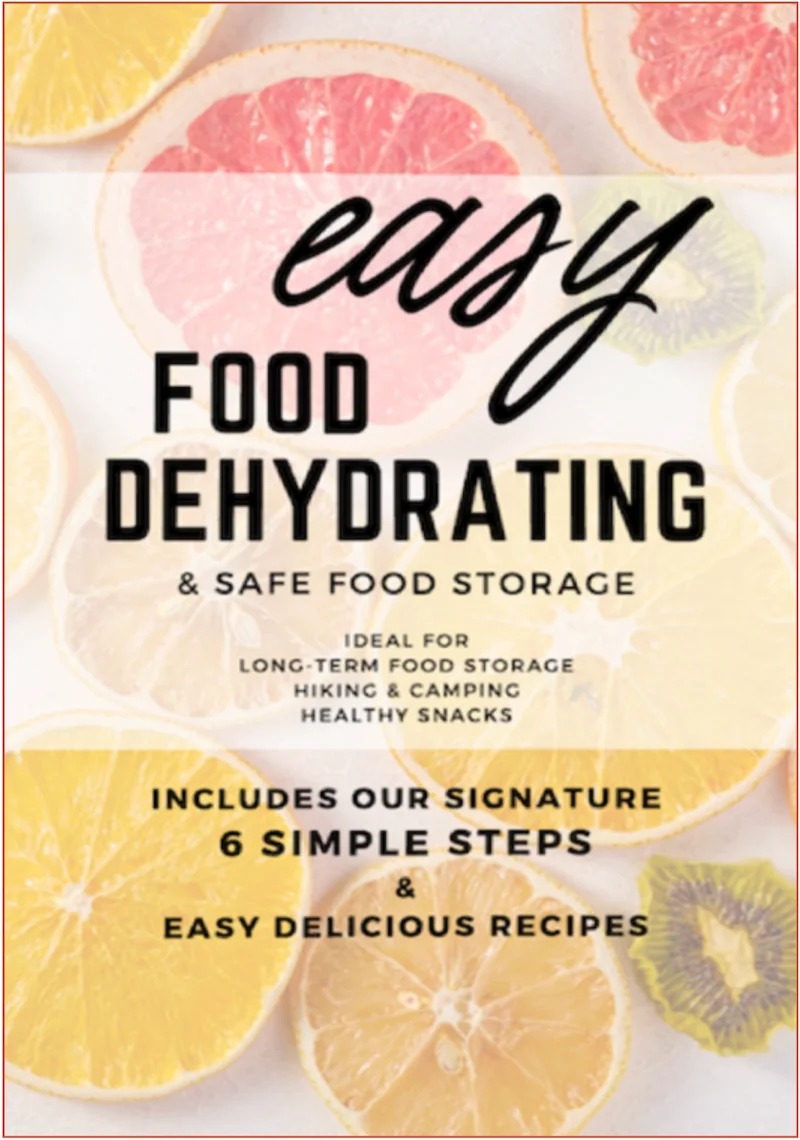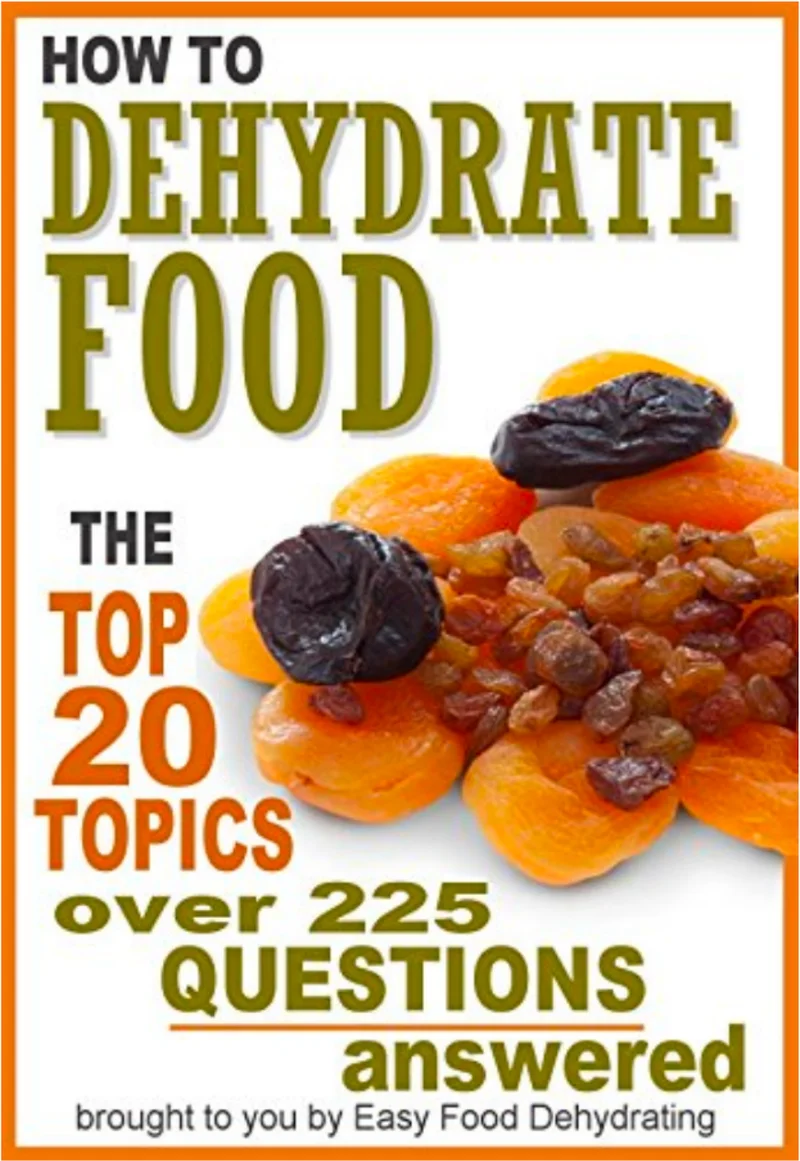What We Mean by “Dehydrate”
Here at Easy Food Dehydrating, “dehydrate” always means using an electric food dehydrator — the easy, reliable way to dry food at home.
Food Dehydrating: How to Dry, Store & Enjoy
🍎Taught by Susan Gast — dehydrating since 2004, sharing online since 2010
Learn how to master food dehydrating for fruits, veggies, meat, and more with our easy guides. If you're worried about rising grocery prices, food shortages, or wasting precious produce, you're in the right place.
✅ Quick Answer: How do you dehydrate and store food?
Dehydrating removes moisture at low, even heat so food keeps its flavor and shelf life. Slice evenly, pre-treat when needed (e.g., lemon water for apples), dry on ventilated trays (most fruits 135°F, veggies 125°F, meats 145°F), then cool and store airtight (vacuum bags, Mason jars, or Mylar with oxygen absorbers).
Step-by-step guides for fruits, vegetables, meats, seafood, and safe long-term storage—taught by Susan since 2010.
New to Dehydrating? Learn the Basics
Start building a healthier, longer-lasting pantry today — and be prepared for whatever life throws your way!
Choosing the Right Dehydrator
- Airflow + Heat: A rear fan = even drying; adjustable temps matter (95–165°F).
- Tray Area: Square trays fit more than round. Add trays as you grow.
- Timer: Nice to have; prevents over-drying.
- Accessories: Mesh screens for small items; nonstick sheets for leathers/sauces.
- Starter Picks: Begin with an affordable model; upgrade as your pantry grows.
👉 See my full buyer's guide for a starter kit here.
What You Can Dehydrate
- Fruits – Dried fruit bar snacks & fruit leathers with bright flavor
- Vegetables – Dry carrots, peas, beans, and more for soups, stews, and casseroles
- Meat & Seafood – Jerky, and Beef, Chicken, Pork, Turkey, & Seafood (safety first)
- Grains, Pasta & Legumes – Cook first, then dry. Quinoa, millet, pasta, and legumes like peas or beans rehydrate quickly into soups and stews (see Lori’s guide).
- Sauces – Tomato sauce dries into leather (see more on my Tomatoes page); applesauce into fruit leathers or a side dish with pork.
👉 Quick Tip: Spread tomato sauce thinly on nonstick sheets to make tomato leather that rehydrates into pasta sauce. Applesauce dries into fruit leathers or a side dish — perfect with pork!
🍎 Fruit mini-recipe: Cinnamon Apple Chips
Core and slice 1/8″; toss with lemon + cinnamon; dry 135°F for 8–12 hrs until leathery. Cool completely and store in a jar.
🥦 Vegetable pro tip
Before dehydrating, give vegetables a quick steam or blanch — it breaks down tough fibers so they dry faster and spring back to life beautifully when rehydrated.
🥩 Meat safety callout
Use lean, fully cooked meats; dry at 145°F until hard. Cool completely before packaging to prevent condensation and spoilage.
Storing Dehydrated Food (Containers & Shelf Life)
Once your food is perfectly dehydrated, the next critical step is storing it properly.
We'll show you how to use food vacuum-sealer bags, Mason jars, Mylar bags, oxygen absorbers, and desiccant packets — plus the right containers — to keep your dehydrated foods fresh, flavorful, and free from spoilage.
Click the images below to dive deeper into each storage method.
Protect Your Dehydrated Foods with Vacuum-Sealer Bags
Vacuum-sealer bags are one of the best ways to keep dehydrated fruits, vegetables, and meats fresh. By removing air and sealing tightly, they block out moisture and oxygen — the biggest threats to your food.
👉 See why vacuum-sealer bags are a must-have for dehydrated food storage.
Store Your Dehydrated Foods in Mason Jars
Mason jars are simple, reusable, and their airtight seals help block out moisture and air. Add oxygen absorbers or desiccant packets for longer storage, and the clear glass makes it easy to see what you’ve got at a glance.
👉 See why Mason jars are a smart choice for dehydrated food storage.
Mylar Bags: Long-Term Storage 1 Gallon (10"x14")
When you need serious protection, Mylar bags block air, light, and moisture — the main causes of spoilage. Add an oxygen absorber and desiccant, seal properly, and your foods can last months or even years.
👉 Learn how Mylar bags keep your dehydrated foods fresh for years.
Keep Foods Fresh: Oxygen Absorbers & Desiccants
Oxygen absorbers and desiccant packets work hand in hand to extend shelf life. Absorbers remove leftover oxygen inside sealed containers, preventing spoilage, off-flavors, and even insect activity. Desiccants tackle moisture, reducing the risk of mold, clumping, and humidity damage.
Use them in vacuum-sealed bags, Mylar bags, and Mason jars to protect fruits, vegetables, meats, and full meal mixes. Always choose food-safe options and replace desiccants if they become saturated.
👉 Extend the freshness of your dehydrated foods with oxygen absorbers.
👉 Keep your dehydrated foods safe and dry with desiccant packets.
How to Rehydrate Dried Food
Rehydrating is simple once you know the basics. Most foods need about equal parts water to food, plus time to soak and simmer.
3 Easy Steps:
- Soak: Cover dried food with hot (or boiling) water and let sit 5–10 minutes.
- Simmer: Bring to a gentle boil and cook 2–10 minutes, stirring if needed.
- Rest: Remove from heat, cover, and let stand 10 minutes so flavors blend.
Quick Tips:
- Veggies: Pre-steaming before drying = faster, softer rehydration.
- Meats & Seafood: Give extra soak time before cooking.
- Cold-Soak Option: Some meals (like noodle salads) can be prepped by soaking in cold water a few hours before eating.
👉 See my full guide to rehydrating foods
Tip: Pot cozy keeps heat; cold-soak works for some lunches; shrimp + meats need extra soak.
Backpacking: Light Meals, Fast Rehydration
Dehydrated foods aren’t just for pantry storage — they’re a backpacker’s best friend. Lightweight, compact, and quick to rehydrate, they let you carry hearty meals without the bulk of canned or fresh ingredients. With the right prep, you can enjoy soups, stews, and even comfort foods on the trail.
- Single-serve bags labeled with water needed.
- Add powdered milk, bouillon, spices for easy flavor.
- Packets of oil/cheese added after rehydration.
Example Backpacking Meal Packs
- Spaghetti & Meat Sauce Pack: pasta nest + dried ground turkey + tomato leather + garlic powder.
- Shepherd’s Pie Pack: dried beef + dried mixed veg + gravy mix; side bag with instant potatoes + dried milk.
Dehydrated Food Recipes You’ll Love
Dehydrated food isn’t just for storage—it can be the star of your meals! From crunchy apple chips to hearty soups and stews, we’ll show you creative ways to turn dried ingredients into delicious, nutritious dishes.
Whether you're looking for easy snacks, long-lasting meal prep ideas, or ways to use up your dehydrated pantry staples, our growing collection of recipes will help you make the most of your preserved foods.
👉 Browse all the Recipes here.
Why Choose Dehydrating?
Dehydrating food isn’t just practical; it’s a rewarding way to embrace sustainable living. Here’s why you’ll love it:
- Save Money: Stock up on seasonal produce and cut grocery costs.
- Reduce Waste: Keep food fresh for months, reduce spoilage.
- Emergency Preparedness: Build a nutritious pantry for any situation.
Ready to Begin Your Dehydrating Journey?
Thousands have already started preserving food the easy way. Ready to join them?
What Our Readers Are Saying
💬 "I just wanted to take a moment to thank you for this wonderful site. I
bought a dehydrator about 5 months ago and it's been such a blessing. It
wasn't easy finding a comprehensive site to learn the ins and outs of
preserving food this way. Thank you for the time it took to put this
website together. Also thank you for informing people about the
need to prepare in a caring way, one that doesn't scare people off :-)"
—Kerri
💬 "I love love my dehydrator and so happy to find your site, now I
am super enthused to read and learn more so I can get to work! LOL. I
currently have broccoli in my dehydrator, just finished fruit leathers,
and tomorrow will try your potatoes suggestion! Thank you! Blessings
:0)"
—Juliette Cagnolatti
💬 "Oh, I am so happy to have found this site, I started last year
dehydrating and have become addicted. Your site makes it so easy to
follow and understand. Thank YOU so much for taking the question out of
doing many different things."
—MJ Jeroue
See more success stories from happy dehydrators (people, not gadgets!)
Frequently Asked Questions About Food Dehydrating
Is dehydrating food safe?
Is dehydrating food safe?
Yes—dry at correct temperatures, cool, and store airtight. For meats/seafood, start with lean, fully cooked products and dry ~145°F until hard.
Do I need an expensive dehydrator?
Do I need an expensive dehydrator?
No. Start with an affordable model that has a fan and adjustable temps; upgrade as you grow.
How long does dehydrated food last?
How long does dehydrated food last?
Properly dried and stored in cool, dark, dry conditions, many fruits/vegs last months or longer; proteins are best used sooner or frozen. Always check smell/appearance.
Can I dehydrate full meals?
Can I dehydrate full meals?
Yes—stews, chili, and sauces dry well. Add cheeses/oils after rehydrating.
What shouldn’t I dehydrate?
What shouldn’t I dehydrate?
High-fat and most dairy items don’t store well.
Start Your Dehydrating Journey Today!
Master the Art of Food Dehydrating with Our Udemy Course!
Become a Dehydrating Pro in Just 3 Hours! Enroll in Our Udemy Course Today
🎥 Step-by-Step Video Tutorials – Perfect for Beginners!
📚 Lifetime Access – Learn at Your Own Pace! ENROLL NOW
Meet Susan — Your Dehydrating Guide
I began dehydrating after the 2004 hurricanes and have taught thousands since 2010.
Real kitchen tests, real results—plus a 3-hour Udemy course for beginners.
Since 2010 • Real Reader Reviews • Udemy Instructor
Meet Susan — Your Dehydrating Guide
I began dehydrating after the 2004 hurricanes and have taught thousands since 2010.
Real kitchen tests, real results—plus a 3-hour Udemy course for beginners.
Since 2010 • Real Reader Reviews • Udemy Instructor
Before You Go...
If you enjoyed this page, tap the ❤️ in the lower right-hand corner.
It saves this page to your Grow bookmarks so you can find it again later.
You’ll also see quick share buttons to copy the link, post to Facebook,
or save it straight to Pinterest.
